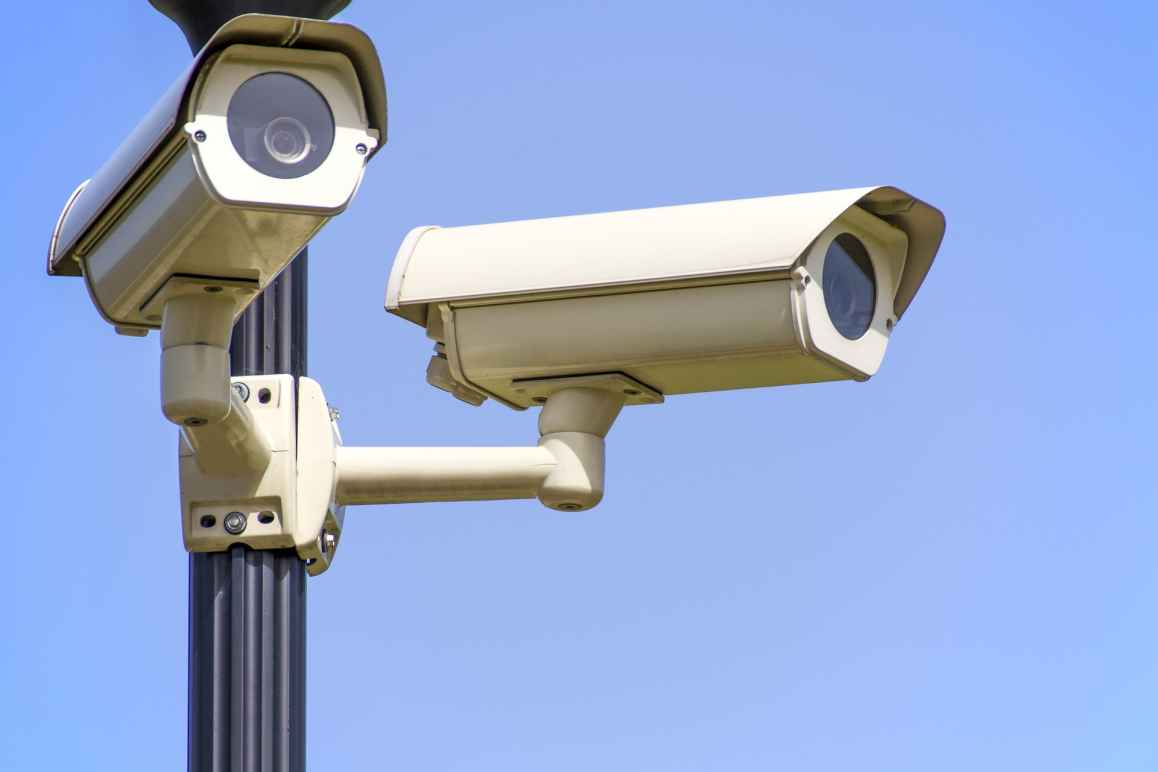By ACLU of Massachusetts staff
In the past two years, we have witnessed a coordinated, nationwide attempt to sabotage the machinery of our democracy and undermine the very principles on which free and fair elections are based. The most infamous and spectacular example was, of course, the January 6 assault at the Capitol—but it's important to consider the more mundane, procedural ways in which this movement seeks to dismantle our democratic institutions. In doing so, we can learn how to exercise the full power of our ballots during the upcoming elections.
The leaders of today’s anti-democratic movement are working to chip away at foundational components of our electoral system—components that, until now, have been uncontroversial: precincts, election boards, and poll workers. This is also why we should all be concerned that the Supreme Court is willing to entertain formerly fringe theories about the certification of election results.
But let’s be clear: We can still fight for our rights—starting in our communities, and at the ballot box. If our opponents are determined to take democracy apart piece-by-piece, we need to learn how to defend each of those pieces. More importantly, we need to learn how to use every part of our democracy—every elected office—to protect and expand civil liberties in the face of these devastating attacks. Voters have the power to send a message to elected officials about what we value and what we want them to prioritize—just as Kansas voters recently did when they defeated a measure that would have stripped the right to abortion from their state constitution.
Massachusetts voters need to pay special attention to down-ballot races in the primary and general election this fall. To illustrate this, let’s look at three key down-ballot races that often go unnoticed but can play major roles in making our democracy stronger.
District Attorney (DA)
District attorneys are the most powerful figures in the criminal legal system; they oversee the prosecution of criminal cases, deciding who gets charged with what, and whether defendants are treated fairly. Organizations like the ACLU have worked hard in recent years to shine a spotlight on this crucial position, emphasizing the ways district attorneys can prioritize values like equity and racial justice over punishment and retribution. And as attacks on our democracy and our civil liberties intensify, DAs can play a crucial role by refusing to enforce unjust laws like abortion bans, classroom censorship laws, and more.
County Sheriff
Sheriffs also hold tremendous power within the criminal legal system, overseeing county jails and houses of correction, which accounts for half of Massachusetts’ incarcerated population. That includes living conditions, like access to addiction treatment and mental health services, as well as educational, vocational, and transitional programs to ensure people re-enter their communities in a positive way. And, as voting rights are increasingly threatened, sheriffs can ensure that incarcerated people have access to the ballot. Despite all this, most Massachusetts voters don’t even know who their sheriff is. That’s why we launched the Know Your Sheriff campaign this year, and why we’re hoping more people cast a vote for this crucial office this fall.
Governor’s Council
The Governor’s Council is an obscure but highly important body that provides “advice and consent” on pardons and commutations, as well as gubernatorial appointments like judges and members of parole board, to name just a few. As the federal judiciary grows ever more extreme, the careful vetting of judges on issues like abortion is essential for members of the Governor’s Council. In addition, the council’s role in rectifying racial injustice through pardons and commutations is pivotal, especially because commuted sentences in Massachusetts are rare.
***
The movement that sparked January 6 is determined to attack the nuts and bolts of our civil society, to leverage every fringe legal theory and elected office possible to destroy our civil liberties. In response, we need to be equally attentive, equally creative, and equally fervent in our defense of democracy, and in our pursuit of liberty and justice for all. The first tool in this fight is the ballot; let’s make sure we use it well.
Date
Wednesday, August 24, 2022 - 3:30pm
Featured image
Show featured image
Hide banner image
Show related content
Share Image
Type
Menu parent dynamic listing
Show PDF in viewer on page
Style
Standard with sidebar
Show list numbers
By Kade Crockford, technology for liberty program director
Last year, the City of Boston voted unanimously to pass an ordinance that will require community control over police surveillance (CCOPS). After being signed into law in November 2021, the ordinance is now set to go into effect in August 2022. Boston joins over 20 other municipalities nationwide—including Cambridge, Lawrence, and Somerville in Massachusetts—with CCOPS laws that empower local communities to influence surveillance and information sharing decisions.
Here’s what Boston residents need to know about the ordinance and its implementation this summer.
How does this ordinance change things?
Surveillance oversight laws give concerned residents and community organizations a meaningful chance to debate and push back against the deployment of surveillance technologies in their neighborhoods. Prior to the implementation of the ordinance in Boston, decisions about surveillance technology acquisition and policy were made behind closed doors, without any democratic engagement or public debate. Over the years, a lack of transparency and democratic oversight governing surveillance in Boston has led to numerous abuses, including the Boston Police Department’s use of social media surveillance technology to target Black people and Muslims online.
The surveillance ordinance institutionalizes transparency and democratic oversight, ensuring all decisions about surveillance technology acquisition and governing policy are made in public by the people’s elected representatives on the City Council.
The ordinance applies to technologies already in use by city agencies—nothing gets grandfathered in or automatically approved. Each technology currently in use must receive approval from the City Council for the agency to continue to use it. It applies to the Boston Police Department, the Boston Parks Department Park Rangers, Boston Public Schools, Boston Public Health Commission, Boston Housing Authority, Boston Municipal Protection Services, and the Office of Emergency Management.
How does the ordinance work?
The ordinance requires the Mayor to submit various documents to the City Council and to make them publicly available on the city’s website. These documents include:
- Surveillance Technology Impact Reports (STIRs), which are due to the City Council starting August 1, 2022. These reports describe specific surveillance technologies, and must include the following information, at minimum:
- Information about the technology and how it works;
- Information describing the purpose of the technology;
- Details regarding the kind of information the technology will collect and how it will be shared with external entities;
- The locations where the technology will be deployed;
- A description of the privacy and anonymity risks the technology may pose, and a mitigation plan to address those risks;
- A description of any disparate impact the technology may have on a particular group, and a mitigation plan to address that disparate impact;
- The financial cost of acquiring, maintaining, and deploying the technology; and
- An explanation of how the city-wide surveillance policy will apply to the use of the technology, and if it cannot, a technology specific use policy.
- Each department's Surveillance Use Policies (SUPs), which are due to the Council July 31, 2022. These are policies to govern each surveillance technology maintained by the agencies subject to the ordinance. The policies are drafted by departments and then the Mayor's office submits them to the Council for approval.
- Technology-Specific Surveillance Use Policies (TSSUPs). These are policies governing the use of surveillance technology and surveillance data that are not covered by the city’s Surveillance Use Policies. For example, if the Boston Police Department has been approved to use drone surveillance subject to a Surveillance Use Policy, but they want to add additional surveillance features to the drone, they would be required to submit a TSSUP in order to do so.
After receiving these materials, the City Council has 60 days to decide by majority vote whether to approve or deny policies and requests to continue to use or acquire individual technologies. If the Council declines to approve a policy or technology, the Mayor may send the issue to the Surveillance Oversight Advisory Board, which can discuss the Council’s concerns, consult with community groups and experts, and report back to the Mayor with suggestions for modifying the request.
Starting February 1, 2024 and annually thereafter, the ordinance also requires the Mayor to submit to the City Council and the public Annual Surveillance Reports, which describe how all approved technologies have been used. These reports must include the following information, at minimum:
- A description of how the technology has been used, including whether it captured information about people not suspected of unlawful conduct;
- Information about how surveillance data was shared with external agencies;
- A summary of community complaints about the technology;
- The results of any internal audits pertaining to the technology;
- A detailed accounting of whether the technology has fulfilled its identified purpose;
- The number of public records requests received pertaining to the technology over the prior year;
- An estimate of the total cost of maintaining and using the technology;
- Information about any civil rights violations or disparate impact; and
- A disclosure of any information sharing agreements related to the technology or the data it produces.
After receiving and reviewing these reports, the City Council can recommend changes to the governing surveillance use policy, or withdraw approval for continued use of a particular technology. No later than May 31 each year, the City Council must hold a meeting to discuss the annual surveillance reports, and release a report including a summary of all surveillance ordinance related matters that came before the council that year.
How can you get involved?
The ordinance is only as strong as the people’s will to participate in our local democracy. Beginning this summer, residents will be able to review the City’s surveillance technology reports and policies as they are submitted to the City Council. The City Council will then work with the Mayor’s office to schedule votes on these matters at Council meetings throughout the late summer and fall. Residents with concerns or feedback on the City’s surveillance policies or technologies can sign up to testify at City Council meetings or express their views to the Council via email.
The ACLU will be paying close attention, and we look forward to working with civil rights and civil liberties supporters in Boston to make sure the City is acting in accordance with our values. To stay informed about our efforts as the ordinance goes into effect, follow the ACLU of Massachusetts on social media.
Date
Tuesday, July 12, 2022 - 4:00pm
Featured image
Show featured image
Hide banner image
Show related content
Tweet Text
[node:title]
Share Image
Type
Menu parent dynamic listing
Show PDF in viewer on page
Style
Standard with sidebar
Show list numbers
By Gavi Wolfe, legislative director of the ACLU of Massachusetts
In its recently released report, the Special Commission on Qualified Immunity recommended a critical reform to Massachusetts’s civil rights laws to improve the administration of justice. This recommendation might fly under the radar, but it deserves high praise and quick action by the legislature. We thank commission Co-chairs Representative Mike Day and Senator Jamie Eldridge for their support of this important recommendation, for their leadership of the commission (on which the ACLU served), and for their continued commitment to justice.
Massachusetts’ civil rights law has a fundamental flaw—even more basic than qualified immunity—that prevents victims of direct, egregious civil rights violations from having their day in court or from being reimbursed for hospital bills, medical treatments, physical therapy, job loss, and other related expenses when they are victims of police violence and misconduct.
Unlike federal law or, to our knowledge, the law in any other state, the Massachusetts Civil Rights Act has been interpreted to prohibit, rather than to authorize, lawsuits for direct violations of civil rights. The law prohibits victims of police misconduct from going to court unless the police violence was specifically accompanied by “threats, intimidation, or coercion.” This language has been interpreted to require plaintiffs to show not simply that their rights were violated, but that the violation occurred as a result of “threats, intimidation or coercion.”
As the commission’s report explains, “[u]nder this interpretation, a police officer’s direct violation of someone’s rights is not actionable under the MCRA unless it was accompanied by ‘threats, intimidation or coercion,’ even if the direct violation of rights was egregious. For example, if a police officer were to be sued under the MCRA for allegedly shooting someone in violation of their civil rights, the officer could claim that the gunshot itself was not actionable, because it was a direct violation of rights, rather than a violation through ‘threats, intimidation or coercion.’” The same defense would be available for other “direct” violations of rights, including unreasonably striking, strip searching, tasing, or killing someone.
This makes no sense. There is no reason why an officer who assaults someone should be immune from liability under our state civil rights act unless they first threaten to commit the assault.
Fortunately, a majority of the commission agreed that this problem should be fixed by amending the MCRA to remove the “threats, intimidation, or coercion” requirement for civil rights actions against law enforcement officers. We are glad that the commission clearly named this problem and charted a way forward. If adopted by the full legislature, this change would permit lawsuits brought by people seeking justice for serious civil rights cases to go forward in Massachusetts courts, just as in every other state across the country.
Date
Wednesday, January 5, 2022 - 8:00pm
Featured image
Show featured image
Hide banner image
Show related content
Tweet Text
[node:title]
Type
Menu parent dynamic listing
Show PDF in viewer on page
Style
Standard with sidebar
Show list numbers
Pages


